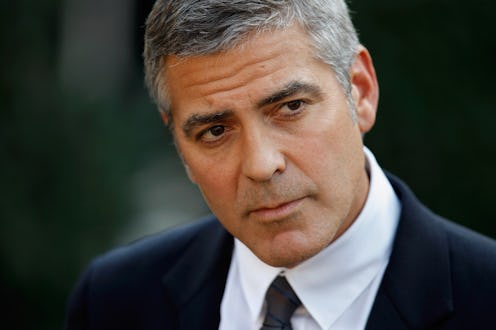Hollywood is still reeling from the horrifying hacking incident that rocked Sony Pictures and a countless number of their employees, and, sadly, it doesn't look like things are going to get much better any time soon. After the hackers behind the release of a massive amount of personal data from Sony's systems threatened acts of terror against Sony Pictures and any movie theater who were planning to show the upcoming Seth Rogen- James Franco-starring comedy The Interview (which surrounds two journalists attempting to assassinate North Korean dictator Kim Jong-un) the film was immediately scrapped, and Sony reportedly has no current plans to ever release it in the future. It's a shocking outcome to an overall bleak situation, and has led to constitutional rights like freedom of speech and creative freedom in Hollywood being questioned by everyone, including celebs — not to mention, what sort of precedent will be set in the future by letting cyber-terrorists who could very well be North Korea themselves dictate Hollywood decisions now. Everyone from Rob Lowe to Brad Pitt have previously spoken out on the incidents that have occurred, and now, George Clooney is the latest to speak out on the unimaginable Sony situation — and he's revealed that he actually circulated a petition demanding freedom of creativity in Hollywood...that many big studio heads shockingly refused to sign.
Clooney revealed the petition in a surprise interview with Deadline posted late Thursday night. Speaking to Deadline reporter Mike Fleming Jr. about his thoughts on why Hollywood pulled The Interview, the star — who recently married London barrister (and overall awesome, intelligent person) Amal Alamuddin — didn't hold back anything, and even blamed media giants for focusing on the wrong part of the story when the hackings first began:
A good portion of the press abdicated its real duty. They played the fiddle while Rome burned. There was a real story going on. With just a little bit of work, you could have found out that it wasn’t just probably North Korea; it was North Korea. The Guardians Of Peace is a phrase that Nixon used when he visited China. When asked why he was helping South Korea, he said it was because we are the Guardians of Peace. Here, we’re talking about an actual country deciding what content we’re going to have. This affects not just movies, this affects every part of business that we have. That’s the truth.
Clooney went on to add that The Interview was pulled because Hollywood giants were afraid of losing more money, and that pulling the film was the wrong move, because buckling to the hackers' demands when they made threats — "the actual definition of terrorism," Clooney said — was the wrong move, "what it now says about us is a whole lot."
As for what could have been done differently, Clooney went a little into the petition he attempted to circulate through Hollywood last week, before The Interview was actually pulled:
All that it is basically saying is, we’re not going to give in to a ransom. As we watched one group be completely vilified, nobody stood up. Nobody took that stand. [...] nobody wanted to be the first to sign on. Now, this isn’t finger-pointing on that. This is just where we are right now, how scared this industry has been made. Quite honestly, this would happen in any industry. I don’t know what the answer is, but what happened here is part of a much larger deal. A huge deal. And people are still talking about dumb emails. Understand what is going on right now, because the world just changed on your watch, and you weren’t even paying attention.
Though it may be too early to really see the effects of what Clooney states in his Deadline interview, there are already hints of a changing Hollywood beginning to show: Steve Carell's upcoming thriller dealing with North Korea has already been canceled before production even began, and studios are already more cautiously approaching what films they want to pick up and distribute. Is it possible that The Interview's cancellation could actually indicate a Hollywood of the future with less creative freedom?
It's a question worth having a discussion about, especially in the sense of how Hollywood and the country as a whole should be responding to threats against the safety and freedom of our people. While it's easy to see why Sony quickly pulled The Interview when the hackers invoked fear of a terrorist attack, there may be a point in what this is going to how free speech is approached in Hollywood — because, really, we have all just seen history happen right before our eyes.
Clooney, in the same interview, revealed his idea:
Stick it online. Do whatever you can to get this movie out. Not because everybody has to see the movie, but because I’m not going to be told we can’t see the movie. That’s the most important part. We cannot be told we can’t see something by Kim Jong-un, of all f*cking people.
